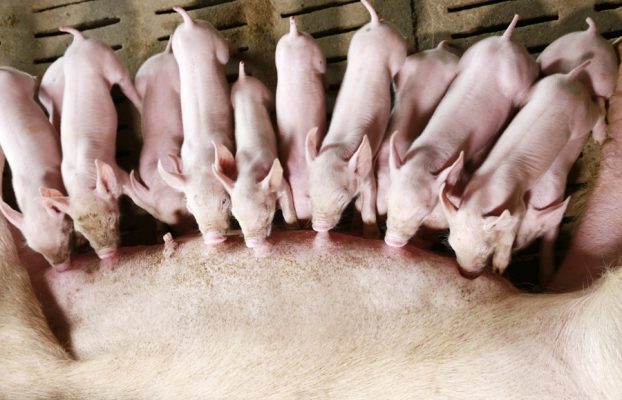Organic acids for animal feed
Organic acids are chemical compounds with acidic properties that have a wide range of applications in animal feed due to their various beneficial properties. The applications of organic acids include promoting gut health and performance, as well as improving the quality and safety of feed.
Los ácidos orgánicos son compuestos ácidos derivados de fuentes naturales como plantas, microorganismos y otros materiales orgánicos. Se utilizan como aditivos en la alimentación animal para mejorar la salud intestinal, controlar el crecimiento de bacterias patógenas, optimizar la digestión y absorción de nutrientes, y promover el bienestar general de los animales
Improved digestion: Organic acids help enhance digestion and nutrient absorption, leading to more efficient feeding and better growth.
Control of harmful microorganisms: These acidic compounds have antimicrobial properties, helping to reduce the proliferation of harmful microorganisms in the animals’ digestive tract and decreasing the need for antibiotics.
Reduction of digestive stress: Acids can help reduce digestive stress, minimizing the incidence of gastrointestinal disorders and improving animal welfare.
Improvement in product quality: Including acids in animal diets can positively influence the quality of animal products, such as meat or eggs.
Feed preservation: In some cases, acids are used as preservatives for animal feed, extending the shelf life of rations and reducing waste.
Improved animal health: They promote healthy digestion and a balanced gut flora, resulting in healthier animals that are more resistant to diseases.
Increased feed efficiency: By optimizing digestion and nutrient absorption, the amount of feed required to maintain animal growth and performance is reduced.
Sustainability: Efficiency in feeding and waste reduction contribute to more sustainable and environmentally friendly animal production.
Economic profitability: The use of organic acids in animal feed can enhance economic profitability by reducing costs, improving feed efficiency, increasing productivity, and improving the quality of final products.
Poultry production: Acids are used in poultry feed to promote healthy digestion, improve growth, and ensure the quality of meat and eggs.
Livestock: In cattle feed, acids are applied to promote efficient digestion, prevent gastrointestinal diseases, and increase performance.
Aquaculture: In the farming of fish and shrimp, acids help maintain a healthy gastrointestinal environment and support optimal growth.
Companion animals: They are also used in pet food to improve digestion and nutrient absorption.
Feed industry: In the production of animal feed, acids are employed as preservatives and quality enhancers.
Acetic acid: Used in animal feed as a preservative and acidifier. It helps prevent the growth of undesirable microorganisms in feed and can improve digestive efficiency.
Butyric acid: This acid in animal feed promotes gut health, reduces inflammation, and controls pathogens, improving feed efficiency and reducing odors in livestock facilities. Its inclusion in animal diets should follow specific recommendations to ensure effectiveness and safety.
Citric acid: In addition to its uses in the food industry, citric acid can be used in animal feed as an acidifier and preservative. It can improve digestion and nutrient absorption in the gastrointestinal tract.
Formic acid: Used as an additive in animal feed to improve food preservation and prevent the growth of fungi and bacteria. It can also help lower the pH in the digestive tract, improving nutrient digestibility.
Fumaric acid: Acts as an acidifier in animal feed, improving gut health and digestion.
Isobutyric acid: Used as a nutritional additive in animal feed to improve gut health and promote performance. It helps maintain a healthy gut environment by inhibiting the growth of pathogenic bacteria and promoting the growth of beneficial bacteria.
Lactic acid: Besides its applications in the food industry, lactic acid is used in animal feed as an acidifier to control pH in the gastrointestinal tract and improve gut health.
Lignosulfonic acid
Malic acid: Used in animal feed to improve palatability and promote digestive health.
Medium-chain fatty acids (MCFAs): MCFAs, such as caprylic-capric acid and lauric acid, are valuable additions to animal feed due to their ability to provide energy, improve gut health, promote nutrient absorption, and reduce heat stress.
Phosphoric acid: An important ingredient in animal feed due to its phosphorus content, which is crucial for growth and overall health.
Propionic acid: An organic acid used as a preservative in animal feed, especially for ruminants like cows and sheep. It helps prevent mold and fungal growth in stored feed and can improve feed palatability.
Sorbic acid
Related News Posts Trends
On our blog you will find articles about our products and industries






